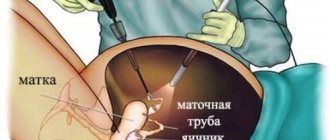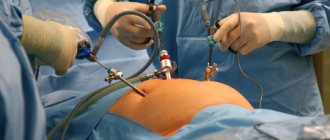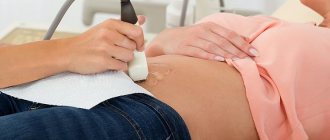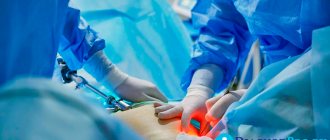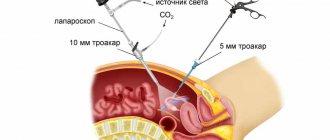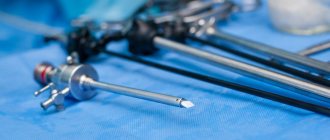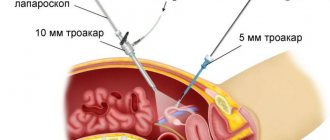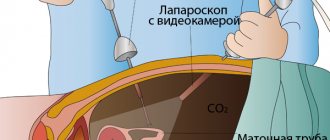Surgery is always stressful, regardless of whether it was planned or emergency. If the surgery is planned, doctors advise preparing for it. 1 week before surgery, the patient needs to refrain from bad habits (do not smoke or drink alcohol).
The rehabilitation period includes recommendations for:
- daily routine - in the first days after surgery, the patient is advised to remain in bed;
- physical activity - the expected loads are dosed;
- nutritional characteristics.
[toc]
Alcohol after laparoscopy: is it allowed before surgery, when can it be taken after it?
Surgery is always stressful, regardless of whether it was planned or emergency. If the surgery is planned, doctors advise preparing for it. 1 week before surgery, the patient needs to refrain from bad habits (do not smoke or drink alcohol).
The rehabilitation period includes recommendations for:
- daily routine - in the first days after surgery, the patient is advised to remain in bed;
- physical activity - the expected loads are dosed;
- nutritional characteristics.
The dangers of drinking ethanol before surgery
If a patient lies down on the operating table while intoxicated, it will be difficult to predict the effect of substances that cause surgical anesthesia:
- The effect of the anesthetic may be excessive or insufficient.
- The process of recovery from anesthesia may be accompanied by the development of delirium tremens (delirium tremens - in patients with alcoholism).
In addition, alcohol increases the load on the heart and blood vessels:
- increasing the release of adrenaline;
- increasing blood viscosity, due to the induction of sludge (adhesion of red blood cells to each other).
In the first hours after consumption, alcohol promotes vasodilation, which increases the risk of bleeding.
Subsequently, vasodilation is replaced by spasm. Against the background of developing dehydration, sludge increases the risk of thrombosis and thromboembolism - the main causes of myocardial infarction and acute cerebrovascular accidents.
Taking ethanol after surgery: impact on recovery from anesthesia and immunity
Operations are performed under general anesthesia or local anesthesia. After anesthesia, patients usually experience:
- signs of damage to the central nervous system (CNS): dizziness and confusion, sometimes hallucinations and delirium;
- incoherence of speech;
- impaired coordination of movements;
The above symptoms usually resolve on their own within 24 hours, although medications can remain in the bloodstream for 2-3 days. It should be remembered that anesthetics inhibit the passage of nerve impulses, affecting every human organ, including the central nervous system. It is during these 2-3 days that it is extremely important to abstain from drinking alcohol:
- Ethanol taken in the early rehabilitation period, even in small dosages, leads to stimulation of the nervous system, which can cause inappropriate behavior of the patient.
- High doses of ethyl alcohol, on the contrary, can block the functioning of the nervous system.
- Alcohol intake disrupts the functioning of the human immune system, as a result of which colds, secondary infections, or a recurrence of purulent infection (paraproctitis) are possible in the postoperative period, which worsens the prognosis.
- The interaction of ethanol with anesthetics can be dangerous: on the part of the central nervous system - the development of delirium and hallucinations is possible;
- from the cardiovascular system - disturbances in heart rhythm and fluctuations in blood pressure may be observed;
- from the respiratory system – bronchospasm is possible.
As a result of drinking alcohol during the rehabilitation stage, the duration of the latter increases significantly.
The negative consequences of drinking alcoholic beverages are manifested in:
- slowing down tissue regeneration;
- exacerbation of chronic diseases;
- disulfiram-like reactions (interaction of breakdown products of ethanol and drugs with the formation of toxic metabolites).
Drinking alcohol during laparoscopy
Laparoscopy is a therapeutic or diagnostic procedure used for diseases of the abdominal and pelvic organs. During surgery, a laparoscope is used. The abdominal cavity fills with carbon dioxide. Through an optical cable, the intra-abdominal space is illuminated with a “cold” light source. This technique allows you to:
- hernioplasty (plasty of hernias of the white line of the abdomen, femoral, inguinal and umbilical hernias);
- cholecystectomy;
- gastrectomy;
- pancreatoduodenal resection;
- operations on the large intestine (for paraproctitis).
Manipulations are performed through several small holes with a diameter of 0.5-1.5 cm, usually under general anesthesia. In this regard, all taboos on drinking alcohol both before and after the procedure remain.
You should not drink alcohol after laparoscopy, as well as after a “classic” operation.
Time when the risks from drinking ethanol are minimized
It is not advisable to drink alcohol after surgery. It is believed that after:
- abdominal surgery, the first minimum dose of ethanol can be taken a month later;
- tooth extraction – after 2-3 days;
- appendectomy (for purulent appendicitis) – after 2-3 weeks;
- gynecological operations (for uterine fibroids or ectopic pregnancy) – after 4 weeks.
- plastic and cosmetic surgeries – after 3 weeks.
The time factor is influenced by the patient’s age and physical condition. If the average time of abstinence during appendectomy is 2-3 weeks, then in young people 25-30 years of age it can be 10-14 days, and in people over 35 years old it can be 1.5-2 months.
If it is not possible not to drink alcohol, it is better to check the approximate “safe” periods of abstinence with your doctor. This applies, first of all, to widespread operations on:
- spine for removal of herniated intervertebral discs, as well as coccyx injuries;
- rectum (for hemorrhoids);
- thyroid gland;
- joints of the limbs;
- prostate (for cancer or adenoma);
- testicle (varicocelectomy for varicocele);
- knee area (on the knee joint);
- veins of the legs (for varicose veins).
Drinking beer after surgery is also prohibited, since beer contains ethyl alcohol, and therefore all the taboos imposed on other alcoholic beverages also apply to drinking beer.
After operations on the eyes (including on the lens using LASIK technology - a type of vision correction using an excimer laser), heart, liver, gall bladder or stomach, it is better to forget about ethanol forever, focusing on soft drinks.
Alcohol after laparoscopy: what is the danger of early drinking?
Laparoscopy is a low-traumatic operation, although it is done under anesthesia. Its purpose is to detect and treat various diseases.
Although the intervention in the human body is minimal, in the postoperative period patients have to make adjustments to their usual lifestyle. In particular, you need to know whether it is possible to drink alcohol after laparoscopy, and the dangers of early drinking.
Features of laparoscopy
To understand whether alcohol is allowed after laparoscopy, you must first consider the distinctive features of such an intervention and determine the need for it.
A special feature of laparoscopy is that it is less traumatic for the patient.
There are two types of laparoscopy:
- diagnostic, carried out to confirm the diagnosis and determine the cause of the disease;
- surgical, during which the diagnosed disease is treated.
In both cases, special microsurgical instruments are used. They are inserted through a puncture or small incision (no more than 2 cm) in the peritoneum. The laparoscope is equipped with a microcamera, with which the doctor can examine any internal organ on the monitor screen and perform the necessary surgical procedures.
If the surgical intervention is successful, the patient is allowed to go home within 24 hours. This is followed by a rehabilitation period, the duration of which depends on the goals of the study and the characteristics of the body. On average, this period lasts from 2 to 4 weeks.
Before discharge, the doctor must explain how much alcohol you should not drink after laparoscopy.
The patient is also advised to avoid the following products:
- spicy, fatty, fried and salty foods;
- canned and smoked food;
- legumes;
- confectionery and flour products;
- milk, carbonated drinks, strong coffee and tea.
Diet recommendations must be followed for two weeks. During this period, you should avoid consuming any foods and drinks that cause bloating and indigestion. It is important to drink enough fluid to remove any remaining anesthesia from the body.
Consequences of drinking alcohol after laparoscopy
So is it possible to drink alcohol after laparoscopy, or should the body be given the opportunity to recover?
Alcohol after laparoscopy can lead to serious and unpleasant consequences
Although this type of operation is minimally invasive, it is still surgical. Therefore, like after any other operation, the body needs time to recover.
This is especially true for the removal of a cyst on the ovary. After such manipulation, women experience pain. Foci of inflammation form in the area of intervention, requiring antibiotics.
And alcohol can reduce their effectiveness.
After surgery, it takes time to restore the functions of the immune system. And getting alcohol into the body requires enormous efforts to remove the breakdown products of ethanol.
After surgical laparoscopy, patients are prescribed non-steroidal anti-inflammatory drugs. In combination with alcohol, their hepatotoxic effect increases. Liver cells die without having time to recover.
After the administration of anesthesia, the remaining drugs are eliminated within a few days. In combination with alcoholic beverages, they slow down the tissue healing process and contribute to the exacerbation of chronic diseases. Therefore, after recovering from anesthesia, it is necessary to clarify when alcohol can be consumed after laparoscopy.
Ethanol promotes vasodilation, which is fraught with internal bleeding, heart attack and stroke. In addition, ethanol breakdown products contribute to increased blood clotting and red blood cell aggregation with subsequent formation of blood clots.
How long after it is possible to drink alcohol?
You can return to your normal lifestyle no earlier than after 1 month. During this period, tissue integrity is restored and the course of antibacterial therapy is completed.
If the operation was performed on the organs of the digestive system, the rehabilitation period extends for several months. In general, this period depends on the type of intervention.
Gynecological manipulations
After endoscopic surgery on the uterine cavity or ovaries, hormonal imbalance occurs. Women experience not only pain, but also nausea, and also suffer from flatulence.
Alcohol after gynecological laparoscopy is allowed to be consumed no earlier than one and a half months later
To relieve pain, they are prescribed painkillers, which also eliminate the inflammatory process. If a bacterial infection occurs after surgery, antibiotics are required. Hormonal medications help normalize hormone levels.
When can you drink alcohol after laparoscopy associated with gynecological procedures? Representatives of the fair half of humanity will be able to relax with a glass of wine or a glass of beer no earlier than 1.5 months after surgery.
Appendix removal
After endoscopic removal of appendicitis, drinking alcohol is contraindicated. The ban is caused by a colossal load on the liver, which can cause massive death of hepatocytes. After such an intervention, all foods and drinks that can provoke an inflammatory process in the digestive organs should be excluded from the diet. These include drinks containing ethanol.
Source: https://zdorov108.ru/lechenie-varikoza/alkogol-posle-laparoskopii-razreshen-li-do-operaczii-kogda-mozhno-prinimat-posle-nee
The dangers of drinking ethanol before surgery
If a patient lies down on the operating table while intoxicated, it will be difficult to predict the effect of substances that cause surgical anesthesia:
- The effect of the anesthetic may be excessive or insufficient.
- The process of recovery from anesthesia may be accompanied by the development of delirium tremens (delirium tremens - in patients with alcoholism).
In addition, alcohol increases the load on the heart and blood vessels:
- increasing the release of adrenaline;
- increasing blood viscosity, due to the induction of sludge (adhesion of red blood cells to each other).
In the first hours after consumption, alcohol promotes vasodilation, which increases the risk of bleeding.
Subsequently, vasodilation is replaced by spasm. Against the background of developing dehydration, sludge increases the risk of thrombosis and thromboembolism - the main causes of myocardial infarction and acute cerebrovascular accidents.
Alcohol after surgery
Surgery is always stressful, regardless of whether it was planned or emergency. If the surgery is planned, doctors advise preparing for it. 1 week before surgery, the patient needs to refrain from bad habits (do not smoke or drink alcohol).
The rehabilitation period includes recommendations for:
- daily routine - in the first days after surgery, the patient is advised to remain in bed;
- physical activity - the expected loads are dosed;
- nutritional characteristics.
How do antibiotics interact with alcohol?
Antibacterial drugs prescribed after the isolation of an ovarian cyst are strictly incompatible with alcoholic beverages.
What effect do antibiotics have when drinking alcohol during the recovery period:
- During the action of drugs on microorganisms, decomposition products are formed that have a toxic effect. After completing its function, the antibiotic breaks down into metabolites. These bad elements are neutralized by the liver and then excreted by the kidneys. If you also take alcohol, the load on your organs will increase.
- Treatment of the genitourinary system and other inflammatory diseases is most often carried out with cephalosporins. Antibiotics of this group, under the influence of alcohol, reduce their effectiveness and also increase the toxic effect on the liver and kidneys.
- “Palin” is a type of antibacterial drug that breaks down when interacting with alcohol. Because of this, the medication does not have the desired effect, and treatment is useless.
- “Zinnat” is an antibiotic, during the treatment of which it is strictly forbidden to drink alcohol. If you do not follow the contraindications, you can die.
- "Trichopol" is an antibacterial agent that inhibits alcohol dehydrogenase. This is a special enzyme due to which alcohol breaks down into safe components. Without it, acetaldehyde accumulates, a very dangerous toxic product.
Alcohol, interacting with antibacterial drugs, has a negative effect. Therefore, drinking alcohol after laparoscopy is prohibited.
Is it possible to drink alcohol after laparoscopy – 1001 salad
The question “when can you drink alcohol after laparoscopy?” They are not interested out of idle curiosity. Failure to follow the rules of conduct before and after surgery is fraught with many negative consequences.
Surgical intervention for ovarian cysts using this method is a low-traumatic procedure. Despite this, doctors do not recommend drinking alcohol after surgery.
We will find out the details of laparoscopy, what is involved in limiting alcohol consumption and how long it lasts.
When can you drink alcohol after laparoscopy?
Laparoscopy is a simple operation, but you can drink alcohol only after the inflammation is over and the recovery period has passed.
The exact time required for the body to recover depends on the specific operation, disease and medications taken. Since dozens of medical surgical procedures are now performed using laparoscopy, the duration of alcohol restrictions can vary from a week to a month.
What is laparoscopy
This is an innovative technology for endoscopic examination of the internal space of the abdominal cavity.
The examination does not require a wide incision of the peritoneum, but is performed with microsurgical instruments launched into the internal cavity through small punctures along the anterior wall of the abdomen.
Using a laparoscope equipped with a microcamera, the doctor has the opportunity to examine internal organs, detect problems, and perform the required manipulations.
Modern methods of laparoscopic examination and treatment are considered minimally invasive and are accompanied by rapid recovery. Despite this, the procedure is still a surgical intervention under general anesthesia. This leaves an imprint on the patient’s behavior during the rehabilitation period.
Differences and advantages of laparoscopy
Laparoscopy is considered a modern method of surgery, less dangerous, traumatic and painful in comparison with classic strip operations. During laparoscopy, small incisions are made with a diameter of 0.5 to 1.5 centimeters.
- Reduce damage caused to the body;
- Ease postoperative condition and pain;
- Significantly speeds up the process of recovery and recovery;
- Reduces the risk of complications after surgery.
However, even such an operation remains a surgical operation. Therefore, before laparoscopy, all the same restrictions apply as when preparing for any other surgical intervention.
Restrictions and contraindications
Contraindications to surgery are rare. These include viral diseases, heart disease, blood clotting disorders and others similar to the standard ones.
There are restrictions that will have to be adhered to until full recovery, that is, the next month.
A sample list of what not to do:
- Due to the fact that the body takes a long time to completely heal damage, you should not engage in sports, for example, doing abs.
- Sexual life also falls under the definition of “sport,” since when having sex, the abs tense, which can cause seams to separate and cause severe pain.
- This also explains why weight should not be applied - there is a high risk of sutures coming apart and opening internal wounds. The maximum permissible weight is 4 kilograms, so entry into the gym and bathhouse is prohibited, as are gymnastics.
- It is worth limiting yourself in exposure to high temperatures. This means that you should not take a bath, although you can wash in the shower.
- The bathhouse is also prohibited. After surgery, a high temperature may persist, at which additional heating of the body is very harmful. What is dangerous about high temperature is that it can have a bad effect on the healing of organs. You should refrain from relaxing at sea and swimming.
Why should you not drink alcohol before and after laparoscopy?
The restriction on alcohol consumption applies both before and after surgery. The minimum period of alcohol restriction before surgery should be several days. The maximum danger is posed by alcohol consumed during the last 24 hours or the day before laparoscopy.
Important : After consuming large amounts of alcohol, the body’s immunity is greatly reduced for the next 8-24 hours. Carrying out surgery in this condition carries a huge health risk.
A sharp suppression of the functions of the immune system is temporary and usually does not lead to disastrous consequences. But during the operation, and especially in the postoperative period, the chance of infection increases significantly, and with reduced immunity the body may not be able to cope with it.
There are other reasons for banning alcohol:
- Anesthesia . General anesthesia is a huge stress for the body. Drugs that cause this condition are prohibited even after a common cold. Alcohol abuse can significantly undermine health and reduce immunity than ARVI for a healthy person.
- Antibiotics and drugs . Taking antibiotics and most other medications with alcohol is strictly prohibited. After surgery, you almost always have to take such medications, which means giving up alcohol is required at least until the end of the treatment process.
Reasons to abstain from alcohol
If the doctor prescribed non-steroidal anti-inflammatory drugs as painkillers after laparoscopy, then their interaction even with a minimal amount of alcohol causes the death of hepatocytes (the cells that make up the liver).
Source: https://NarkoPro.ru/lekarstva/operaciya-alkogol.html
What is laparoscopy
This is an innovative technology for endoscopic examination of the internal space of the abdominal cavity. The examination does not require a wide incision of the peritoneum, but is performed with microsurgical instruments launched into the internal cavity through small punctures along the anterior wall of the abdomen. Using a laparoscope equipped with a microcamera, the doctor has the opportunity to examine internal organs, detect problems, and perform the required manipulations.
Modern methods of laparoscopic examination and treatment are considered minimally invasive and are accompanied by rapid recovery. Despite this, the procedure is still a surgical intervention under general anesthesia. This leaves an imprint on the patient’s behavior during the rehabilitation period.
Alcohol after laparoscopy: what is the danger of early drinking?
Laparoscopy is a low-traumatic operation, although it is done under anesthesia. Its purpose is to detect and treat various diseases.
Although the intervention in the human body is minimal, in the postoperative period patients have to make adjustments to their usual lifestyle. In particular, you need to know whether it is possible to drink alcohol after laparoscopy, and the dangers of early drinking.
Gallbladder resection
After removal of the gallbladder, patients have to change not only their habits, but also their entire lifestyle. You have to exclude many familiar foods from your diet, including alcohol.
After laparoscopy of the gallbladder, it is recommended to completely stop drinking alcohol.
And if the diet returns to its previous course over time, you must give up alcoholic beverages for the rest of your life. Otherwise, the likelihood of developing liver failure and cirrhosis increases.
Permitted volume of alcoholic beverages
Knowing when you can take alcohol after laparoscopy, you can begin to determine dosages. Each person can take no more than 30 ml of pure ethyl alcohol per day without harm to the body.
In terms of other alcoholic beverages, the following results:
- vodka, cognac – 75 ml;
- dessert wine – 185 ml;
- dry wine – 250 ml;
- beer – 750 ml.
Conclusion
Can I drink alcohol after laparoscopy? It is possible if the rehabilitation period passed without complications.
An endoscopic operation performed by a qualified specialist does not pose a threat to the life and health of the patient. But if the intervention was carried out on the digestive organs, you will have to forget about alcoholic beverages forever.
: Rehabilitation after laparoscopy
Source: https://stopz.ru/informaciya/alkogolizm/alkogol-posle-laparoskopii-chem-opasno/
What not to eat during the postoperative period
During the rehabilitation period, it is prohibited to add the following dishes and products to the diet:
- Sausage and fatty meats;
- Dishes are fried, spicy and fatty;
- Lard and other animal fats;
- Duck, goose meat;
- Dishes with a high content of butter or vegetable oil;
- Marinades and canned food;
- Smoked and salted;
- Spices;
- Butter products;
- Freshly baked bread;
- Confectionery products;
- Mushrooms;
- Legumes;
- Chicken eggs;
- Cabbage;
- Alcohol;
- Soda, strong coffee, tea;
- Fatty dairy products.
If you eat these foods during the postoperative period, there is a possibility of flatulence, constipation, and abdominal pain.
Alcohol after laparoscopy
First, let's define that there are two types of laparoscopy: diagnostic and operative. Both procedures are carried out using special instruments. In contrast to open strip surgery, laparoscopy is much easier for patients to tolerate. If there are no complications, the patient is discharged within 24 hours. Naturally, no one will allow patients to drink alcohol at this time.
Features of behavior after surgery
If the maximum duration of a laparoscopic operation is two hours, then it will take several days for the body to recover.
The duration of the recovery period depends on the body's response to general anesthesia, the type and purpose of the study.
Since the operation affects the abdominal cavity, special attention is paid to nutrition, when much of the usual diet is prohibited.
What you will have to give up after laparoscopy:
- spicy, fried, fatty, and salty foods;
- canned food, smoked meats, marinades;
- confectionery, baked goods and other sweets;
- milk, legumes, carbonated drinks;
- alcohol, coffee, strong tea.
An important addition: dietary restrictions are imposed for the first two weeks after surgery so as not to cause disruptions in the functioning of the stomach and intestines. We should not forget that nutrition after abdominal surgery should be gentle, but fractional, and the drinking regimen should be enhanced (up to 2 liters of clean water per day).
Alcohol during rehabilitation
As with other types of surgical procedures, drinking any type of alcohol after laparoscopy is especially dangerous. This is especially true in the field of gynecology.
Since after endovideosurgery procedures associated with the appearance of postoperative pain and inflammation, patients are usually prescribed certain medications.
Taking painkillers and antibacterial agents is incompatible with alcohol; consuming it is strictly prohibited.
Reasons for the ban on alcoholic beverages after laparoscopy:
- instead of restoring immunity, the body will have to expend energy on removing alcohol toxins;
- when treating an ovarian cyst using the laparoscopic method, if a woman drank even a little beer before the operation, this threatens her with inflammatory complications;
- taking alcoholic beverages together with non-steroidal anti-inflammatory drugs leads to the death of hepatocytes;
- drinking alcohol after anesthesia slows down regeneration processes and also leads to exacerbation of hidden ailments and chronic problems;
- By causing vasodilation, alcohol after anesthesia threatens internal bleeding, hemorrhages, and can cause a heart attack or stroke;
- alcohol strongly thickens the blood, which causes clogging of small capillaries with clumping red blood cells, leading to the appearance of blood clots;
- Consumption of alcoholic beverages that depress the nervous system can provoke confusion, delirium, and hallucinations.
Warning: alcoholic drinks combined with antibiotics are especially dangerous, since two important organs suffer from the toxic effects of alkaloids, the load on which increases. In the liver, the antibiotic is neutralized and decomposed, and the kidneys remove metabolites from the body. When some antibiotics are combined with alcohol, fatal consequences can occur.
Recovery time after laparoscopy
For optimal recovery after this operation, the human body requires a certain period of time. After abdominal surgery, this period is noticeably longer.
Its duration depends on the type of manipulation (treatment or diagnosis), the type of procedure (the object of influence), the presence of complications - due to all these factors, the period can easily stretch for a couple of weeks or a month. At this time, events related to drinking alcohol may well occur in a person’s life.
Therefore, patients after such an operation often have a question: when can you drink alcohol after laparoscopy? Here it is worth considering the types of laparoscopic operations and certain features of adaptation after them.
- Gynecological procedures. During the recovery process after laparoscopy, women have to deal with bloating and nausea. When pain occurs, they are prescribed non-steroidal anti-inflammatory drugs, and if inflammation is suspected, antibiotics are prescribed. After surgery for ovarian cysts, women must take hormonal medications to balance their hormonal levels. So, alcoholic drinks during gynecological procedures with endovideosurgery are allowed only one and a half months after the operation, since these medications are absolutely incompatible with any doses of alcoholic beverages.
- Appendectomy. After laparoscopic appendectomy, alcohol is prohibited because it greatly harms the functioning of the liver, and therefore cirrhosis can develop. Among other things, ethanol promotes inflammation of the mucous membranes of the entire digestive tract. Due to the likelihood of bloating and flatulence, you should not drink beer, because this drink is a product of natural fermentation. Increased gas formation can easily cause seams to come apart. The time after which alcohol consumption is allowed after such operations is set by the attending physician in each specific case, depending on the progress of the recovery process.
- Removal of the gallbladder. After removal of the gallbladder, people have to significantly adjust their diet, which quite changes their entire lifestyle. The body should be helped to adapt to new conditions, and sometimes you will have to take some medications for life. Therefore, after such an intervention in the body, alcohol is clearly contraindicated, since the organ that plays an important role in the breakdown of alcohol has been removed. In this case, it is impossible to do without strict adherence to medical instructions.
It is worth mentioning a few more useful tips regarding behavior after laparoscopy. On the first day after this surgical intervention, the patient needs bed rest. At this time, eating is prohibited, you are allowed to drink only still water.
For about three months you should not lift weights, make sudden movements with your arms, lift them quickly up, or stretch. If you follow your doctor's recommendations, it will take very little time for complete recovery after laparoscopy.
SOURCES: https://proskopiyu.ru/laparoskopiya/alkogol-posle-laparoskopii.html https://alkogolstop.
ru/questions/alkogol-posle-laparoskopii.html https://alkotraz.ru/zdorove/alkogol-pri-zabolevaniyah/posle-laparoskopii-kogda-mozhno-pit-alkogol.html
Source: https://uzibook.ru/laparoskopiya/alkogol-posle-laparoskopii.html
POSSIBLE COMPLICATIONS AFTER THE INTERVENTION
Despite the short recovery period (10 days), laparoscopic surgery is performed under general anesthesia with endotracheal anesthesia. Although manipulation of the abdominal area is not considered particularly dangerous, some complications cannot be ignored. Therefore, laparoscopy should be entrusted only to an experienced surgeon, because undesirable consequences are mainly associated with highly complex operations to remove fibroids, foci of endometriosis, and hysterectomy. The doctor must warn the patient about the possible consequences of the diagnostic or therapeutic procedure.
PAIN AND TEMPERATURE
In addition to pain at the puncture sites, it usually disappears after a few days; patients often complain of pain near the shoulder. The development of the syndrome is a consequence of the gas used; it irritates the phrenic nerve. During gynecological intervention (removal of cysts), there is a risk of infection of the incision sites. In this case, the development of the inflammatory process is signaled not only by the pain effect, but by high temperature. To relieve such symptoms, a course of antibacterial drugs is prescribed.
Women's problems
- Women who have undergone laparoscopic surgery to remove an ovarian cyst experience disruptions in their menstrual cycle. Therefore, patients are prescribed a course of hormonal therapy. However, if after six months the cycle has not recovered, consultation with a specialist is necessary, because the stress of surgery could weaken the body’s protective functions. To restore them, vitamin complexes and immunomodulators are prescribed.
- After a surgical procedure, scanty discharge may appear from the genital tract. If the problem does not disappear after 12 days, and the discharge becomes intense and mixed with blood, this may indicate the spread of infection throughout the body. Therefore, you will have to immediately go to the doctor.
How laparoscopy can affect a child during early pregnancy
Laparoscopic intervention during early pregnancy is relatively safe, but the negative consequences for the developing fetus are hidden not so much in the manipulations as in the need to use specific medications. For example, anesthesia used during the procedure can disrupt the formation of the fetal neural tube and internal organs.
To exclude possible complications, doctors recommend performing laparoscopy no earlier than the 16th week of pregnancy. During this period, the uterus does not limit the view, and the child’s organs and structures have already formed.
THREAT OF INTERNAL ORGAN DAMAGE
The expanding gas is introduced blindly into the patient's abdominal cavity using a trocar or a Veress needle. Although the instruments do not have sharp ends, their safe insertion requires the surgeon's experience and precise adherence to the technique. The risk of injury to internal organs and tissues is considered minimal due to the special protective equipment of the instruments used.
Consequences of internal vascular injuries
Despite the unique opportunity to observe the progress of the operation on the monitor screen, it is possible that the surgeon may make mistakes, as well as malfunction of the instrument. This causes possible injuries to large vessels, burns of tissue of the retroperitoneal organs, which can further lead to the development of necrosis leading to peritonitis. If the vessel is insufficiently coagulated during laparoscopic intervention, there is a risk of internal bleeding. They cause bleeding during the postoperative period
Although the likelihood of such consequences is very low, the doctor should pay special attention to the integrity of the vessels during manipulation, and the patient - to his condition after it.
How soon can you drink alcohol after laparoscopy?
Good day! My name is Khalisat Suleymanova - I am a herbalist. At the age of 28, I cured myself of uterine cancer with herbs (read more about my experience of recovery and why I became a herbalist here: My story).
Before being treated using traditional methods described on the Internet, please consult with a specialist and your doctor! This will save your time and money, since the diseases are different, the herbs and treatment methods are different, and there are also concomitant diseases, contraindications, complications, and so on.
There is nothing to add yet, but if you need help in selecting herbs and treatment methods, you can find me at my contacts:
Instagram page: instagram.com/fitoterapevt1
Telephone: 8
Email: [email protected]
I consult for free.
Is it possible to drink alcohol after laparoscopy? What is this procedure? Why is it carried out? All these questions arise in women who suffer from diseases of the female organs such as ovarian cysts and some diseases of the uterus.
Since in most cases everything depends on the severity of the disease and the process of recovery of the body, only the attending physician can accurately say when you can drink alcohol and how much.
But in order to understand the approximate recovery time, you need to know what kind of procedure it is and why it is performed.
What is laparoscopy
Laparoscopy is an operation performed under general anesthesia. It involves endoscopic treatment and surgical intervention.
When performing this technique, the abdominal cavity is not cut. The instruments are inserted through the anterior wall of the womb. As a rule, the incision does not exceed 2 cm. Three instruments are inserted through the incision, one of them is a video camera with light, which ensures good visibility of the affected area of the body. If the operation is successful, the patient is discharged from the hospital on the third day.
The advantages of this method are as follows:
- less damage is caused to the body;
- the postoperative condition is easier;
- The recovery process goes quickly.
INTERESTING fact: Is it possible to take Levomycetin with alcohol?
But despite all the positive aspects, there are still some recommendations and prohibitions for its implementation. This primarily applies to alcoholic beverages. Alcohol is prohibited before and after laparoscopy of ovarian and fallopian tube cysts.
Why shouldn't you drink alcohol before surgery?
It is forbidden to drink drinks two days before the procedure. Drinking alcoholic beverages within 24 hours before surgery poses a serious danger to the patient.
Since the body’s immunity is greatly reduced, therapy can cause severe harm to health.
Of course, the decrease in the body’s defense functions after alcohol is temporary, but in this condition the body is exposed to infections.
Simple ways to treat complex diseases:
As a result, the immune system may not cope and instead of benefit, a person receives only harm. There are also other reasons why alcohol is prohibited. These include:
- Anesthesia. It causes severe stress to the body, but without it the procedure will not be carried out. As you know, it cannot be performed even on a person suffering from a common cold.
- Antibacterial treatment. Alcohol is strictly prohibited from taking such drugs. And rehabilitation therapy after laparoscopy involves their use for at least 14 days.
INTERESTING fact: After gallbladder removal, when can you drink alcohol?
Based on what was written above, we conclude that alcohol after laparoscopy of the fallopian tubes and ovaries is strictly prohibited. Do not forget that there are cases when, due to drinking alcohol on the eve of the operation, anesthesia has a short-term effect. As a result, a person comes to his senses during the operation.
Recommended Foods
When correcting the diet, the main emphasis is on light foods rich in vitamins and microelements. What can you eat after laparoscopy: porridge with water or low-fat milk of a thin consistency, steamed, boiled or stewed vegetables: carrots, zucchini, beets, liquid mashed potatoes, broths and light vegetable soups, lean fish (pollock, haddock, hake), which are cooked by steam method.
The list continues with boiled turkey or chicken (steamed poultry cutlets), beef liver processed by stewing, soft cottage cheese, yogurt, fermented baked milk, kefir (the fat content of fermented milk products is maintained at 2.5%), fruit and oatmeal jelly. Also recommended are any seafood, peeled fruits, berries, omelettes cooked in the microwave, homemade compotes, and diluted freshly squeezed juices.
It is recommended not to add salt to cooked dishes. Ideally, exclude salt from the diet during the diet.
The woman’s condition on the first day
The first day after laparoscopic intervention, the woman remains in the hospital. Doctors are monitoring her well-being to monitor the occurrence of acute complications.
When the anesthesia wears off, the patient may feel severe chills - this is how the body reacts to the anesthesia. This condition is not dangerous; the patient is covered with additional blankets. Negative effects of anesthesia include nausea and vomiting. 5-6 hours after the operation, the patient can already stand up and walk independently.
On the first day after the intervention, a woman may be bothered by pain in the throat, since during the operation the larynx is irritated by the tube through which anesthesia is administered.
Abdominal pain is common after surgery. To relieve them, the doctor prescribes painkillers. The pain should go away on its own a few days after laparoscopy.


